 For those drawn to mathematical concepts with an interest in the way society, politics, science and history work together to form the economy, a Master’s in Economics might be a good fit. A Master’s in Economics degree, whether it be through a school of business, an economics department, or a liberal arts degree, can prepare graduates for lucrative careers in law, government, banking, real estate, marketing, corporate finance, or real estate to name only a few. These programs offer diverse options for further education in the area of economics to meet a variety of needs and career goals. Below is a list of schools that offer an online master’s degree in economics taking only cost into consideration. These are the cheapest online master programs in economics. Program tuition does not include fees — check with the institution for a complete list of costs. Our data was taken from the university websites.
For those drawn to mathematical concepts with an interest in the way society, politics, science and history work together to form the economy, a Master’s in Economics might be a good fit. A Master’s in Economics degree, whether it be through a school of business, an economics department, or a liberal arts degree, can prepare graduates for lucrative careers in law, government, banking, real estate, marketing, corporate finance, or real estate to name only a few. These programs offer diverse options for further education in the area of economics to meet a variety of needs and career goals. Below is a list of schools that offer an online master’s degree in economics taking only cost into consideration. These are the cheapest online master programs in economics. Program tuition does not include fees — check with the institution for a complete list of costs. Our data was taken from the university websites.
#1. Georgia Southern University
Georgia Southern University (GSU) is part of the University of Georgia system. Founded in 1909 in Statesboro, GA , GSU enrolls over 20,000 students each year in 119 degree programs, including a fully online Master of Science in Applied Economics. This degree requires 30 credits for graduation and emphasizes analytical skills in financial economics, economic development, and regulatory issues. Accredited by the Association to Advance Collegiate Schools of Business (AACSB), GSU’s MSAE courses are taught by GSU faculty and usually have between 8 – 15 students in each class. Core courses include Microeconomics, Macroeconomics, International Economics, and Applied Econometrics while elective choices include Regional Economic Development, Industrial Organization, Health Economics, and Behavioral Economics. Students entering the program must have taken calculus, statistics, and Math for Applied Economics with a minimum grade of “C” in each course. Competitive GRE scores are also required.
including a fully online Master of Science in Applied Economics. This degree requires 30 credits for graduation and emphasizes analytical skills in financial economics, economic development, and regulatory issues. Accredited by the Association to Advance Collegiate Schools of Business (AACSB), GSU’s MSAE courses are taught by GSU faculty and usually have between 8 – 15 students in each class. Core courses include Microeconomics, Macroeconomics, International Economics, and Applied Econometrics while elective choices include Regional Economic Development, Industrial Organization, Health Economics, and Behavioral Economics. Students entering the program must have taken calculus, statistics, and Math for Applied Economics with a minimum grade of “C” in each course. Competitive GRE scores are also required.
Accreditation: Georgia Southern University is accredited by the Southern Association of Colleges and Schools.
Program Tuition: $12,300
#2. University of North Dakota
Located in Grand Forks, ND, the University of North Dakota (UND) is a public research university with over 15,000 students and 40 online degree programs. UND’s online Master of Science in Applied Economics prepares graduates for careers in economic research within government 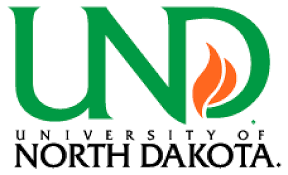 and business sectors through providing firsthand experience in economic theory, mathematical economics, data analytics, and advanced statistical methods. Core courses include Advanced Price Theory, Topics in Applied Econometrics, Advanced Managerial Economics, Advanced International Economics, Demographic Methods for Economics, and Economic Development: Global, National, and Regional Issues. In addition students may choose a specific area to focus on for the required research component. Classes are offered in live format during set times that are convenient for most students to give the opportunity to interact with professors and fellow students. For the working professional or for those whose schedule does not allow for the live format, students also have access to recorded lectures and other course materials for reference. All students have continuous access to online tutoring and tech support. Depending on undergraduate work, 31 or 32 credits are required for graduation. This degree is accredited by the Association to Advance Collegiate Schools of Business (AACSB).
and business sectors through providing firsthand experience in economic theory, mathematical economics, data analytics, and advanced statistical methods. Core courses include Advanced Price Theory, Topics in Applied Econometrics, Advanced Managerial Economics, Advanced International Economics, Demographic Methods for Economics, and Economic Development: Global, National, and Regional Issues. In addition students may choose a specific area to focus on for the required research component. Classes are offered in live format during set times that are convenient for most students to give the opportunity to interact with professors and fellow students. For the working professional or for those whose schedule does not allow for the live format, students also have access to recorded lectures and other course materials for reference. All students have continuous access to online tutoring and tech support. Depending on undergraduate work, 31 or 32 credits are required for graduation. This degree is accredited by the Association to Advance Collegiate Schools of Business (AACSB).
Accreditation: The University of North Dakota is accredited by the Higher Learning Commission of the North Central Association of Colleges and Schools.
Program Tuition: $13,924
#3. University of North Alabama
The University of North Alabama (UNA), located in Florence, AL, is the state’s oldest public four-year educational institution. As a part of the University of Alabama system, UNA 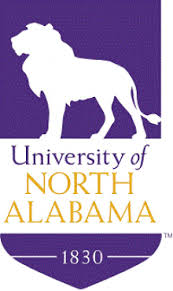 enrolls nearly 7,500 students each year and offers 140 majors and concentrations. UNA’s online Master’s of Business Administration with a concentration in Innovative Economic Development requires 34 credits for graduation and is accredited by the Association to Advance Collegiate Schools of Business (AACSB). Students begin the degree by completing a self-paced Foundations in Business course and then go on to the Core MBA courses which include Cost for Management Decision Analysis, Enterprise Systems Analysis and Design, Management Policy, and Marketing Strategy. Innovative Economic Development concentration courses include Regional Innovation Ecosystems, Collaborative Leadership, a Capstone course, and a choice between Economic Development and Innovation Strategy or Economic Development and Innovation Policy. Students admitted to the MBA program must have at least three years experience in a professional or entrepreneurial position plus an undergraduate degree or a graduate or professional degree.
enrolls nearly 7,500 students each year and offers 140 majors and concentrations. UNA’s online Master’s of Business Administration with a concentration in Innovative Economic Development requires 34 credits for graduation and is accredited by the Association to Advance Collegiate Schools of Business (AACSB). Students begin the degree by completing a self-paced Foundations in Business course and then go on to the Core MBA courses which include Cost for Management Decision Analysis, Enterprise Systems Analysis and Design, Management Policy, and Marketing Strategy. Innovative Economic Development concentration courses include Regional Innovation Ecosystems, Collaborative Leadership, a Capstone course, and a choice between Economic Development and Innovation Strategy or Economic Development and Innovation Policy. Students admitted to the MBA program must have at least three years experience in a professional or entrepreneurial position plus an undergraduate degree or a graduate or professional degree.
Accreditation: The University of North Alabama is accredited by the Southern Association of Colleges and Schools.
Program Tuition: $14,450
#4. West Texas A & M University
Founded in 1910 in Canyon, TX, West Texas A & M University (WTAMU) is a public research institution that enrolls nearly 10,000 students each year in undergraduate, graduate, and doctoral programs including 39 masters degrees. WTAMU’s online Master of Science in Finance and Economics degree  is an advanced degree designed for those already in the field or with an academic background in economics, finance, accounting and statistics. While a graduate degree is not required for admission to the program, proficiency in these areas must be shown either through proof of undergraduate work or through completion of advanced standing exams in these areas. If neither of these requirements is satisfied students are required to take four courses – one in each area – prior to beginning degree coursework. Core courses make up 21 credits of this 36 credit degree program with room for students to tailor their degree to particular interests or career goals. Students choose one course in each of the following areas: Theories of Households and Firms, Monetary and Fiscal Policy, Corporate Governance, Corporate Finance, Asset Valuation, International, and Quantitative Analysis. In addition, students take three elective courses in economics or finance and two elective courses in economics, finance, accounting, or computer information and decision management. All students must pass a comprehensive exam at the completion of coursework. This degree is accredited by the Association to Advance Collegiate Schools of Business (AACSB).
is an advanced degree designed for those already in the field or with an academic background in economics, finance, accounting and statistics. While a graduate degree is not required for admission to the program, proficiency in these areas must be shown either through proof of undergraduate work or through completion of advanced standing exams in these areas. If neither of these requirements is satisfied students are required to take four courses – one in each area – prior to beginning degree coursework. Core courses make up 21 credits of this 36 credit degree program with room for students to tailor their degree to particular interests or career goals. Students choose one course in each of the following areas: Theories of Households and Firms, Monetary and Fiscal Policy, Corporate Governance, Corporate Finance, Asset Valuation, International, and Quantitative Analysis. In addition, students take three elective courses in economics or finance and two elective courses in economics, finance, accounting, or computer information and decision management. All students must pass a comprehensive exam at the completion of coursework. This degree is accredited by the Association to Advance Collegiate Schools of Business (AACSB).
Accreditation: West Texas A & M University is accredited by the Southern Association of Colleges and Schools.
Program Tuition: $16,740
#5. Bellevue University
Founded in 1966 in Bellevue, Nebraska, Bellevue University is a nonprofit university that specializes in adult education with  over 75 fully online undergraduate and graduate degrees. Bellevue’s online Master of Science in Strategic Finance is a little different than the other economics degrees listed here but well worth considering if you are interested in a leadership career at the intersection of business and finance. Graduates from this degree program are highly qualified to make management decisions that maximize economic, social, and organizational value in a wide variety of industries. Core courses include Financial Reporting and Analysis, Accounting for Performance Management, Financial Management and Strategy, Investments, and Leadership and Communication in Business: Holistic Financial Strategies for Value Optimization. In addition, students take three elective courses in one of 19 areas of concentration including Finance. Courses within this concentration include Advanced Cost Accounting, International Finance, Independent Study in Finance, and Economics. 36 credits are required for graduation.
over 75 fully online undergraduate and graduate degrees. Bellevue’s online Master of Science in Strategic Finance is a little different than the other economics degrees listed here but well worth considering if you are interested in a leadership career at the intersection of business and finance. Graduates from this degree program are highly qualified to make management decisions that maximize economic, social, and organizational value in a wide variety of industries. Core courses include Financial Reporting and Analysis, Accounting for Performance Management, Financial Management and Strategy, Investments, and Leadership and Communication in Business: Holistic Financial Strategies for Value Optimization. In addition, students take three elective courses in one of 19 areas of concentration including Finance. Courses within this concentration include Advanced Cost Accounting, International Finance, Independent Study in Finance, and Economics. 36 credits are required for graduation.
Accreditation: Bellevue University is accredited by the Higher Learning Commission of the North Central Association of Colleges and Schools.
Program Tuition: $20,340
#6. Southern New Hampshire University
As a private nonprofit university located near Manchester, NH, Southern New Hampshire University (SNHU) enrolls the majority of their almost 64,000 students each year in over 200 online degree programs. 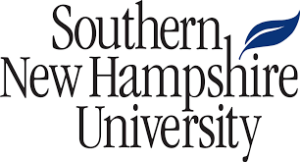 SNHU’s Master of Science in Applied Economics prepares graduates for leadership careers in a variety of fields with both the interpretive and scientific skills needed to make expert decisions. SNHU’s program teaches students how to best analyze economic variables and how to use resources efficiently. This degree requires 36 credits for graduation, 24 of which come from Core courses with the remaining 12 in electives. Core courses include Mathematics and Statistics for Economics, Microeconomics Theory and Analysis, Macroeconomics Theory and Analysis, Game Theory and Industrial Organization, and Applied Econometrics. Electives include Managerial Economics, Environmental and Natural Resource Economics, Corporate Finance, Investment Analysis and Portfolio Management, and Quantitative Analysis for Decision Making. SNHU offers rolling admission for five program start dates throughout the year.
SNHU’s Master of Science in Applied Economics prepares graduates for leadership careers in a variety of fields with both the interpretive and scientific skills needed to make expert decisions. SNHU’s program teaches students how to best analyze economic variables and how to use resources efficiently. This degree requires 36 credits for graduation, 24 of which come from Core courses with the remaining 12 in electives. Core courses include Mathematics and Statistics for Economics, Microeconomics Theory and Analysis, Macroeconomics Theory and Analysis, Game Theory and Industrial Organization, and Applied Econometrics. Electives include Managerial Economics, Environmental and Natural Resource Economics, Corporate Finance, Investment Analysis and Portfolio Management, and Quantitative Analysis for Decision Making. SNHU offers rolling admission for five program start dates throughout the year.
Accreditation: Southern New Hampshire University is accredited by the New England Association of Colleges and Schools.
Program Tuition: $22,572
#7. University of Houston – Victoria
Located in Victoria, TX, the University of Houston – Victoria (UHV) is one of four universities within the state system and enrolls just over 4,000 students each year. UHV’s online Master of Science in Economic Development and Entrepreneurship program is accredited by the Association to Advance Collegiate Schools of Business (AACSB) preparing graduates to be experts at the intersection of 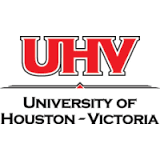 business and entrepreneurship. This 36 credit degree is designed for people interested in starting and growing their own business or in helping others grow businesses that will grow local economies in the areas of government, industry, chambers of commerce, corporations, consulting firms, utilities, and many more. Core courses include Fundamentals of Entrepreneurship and Innovation, Developing the Business Plan, Growing the Successful Venture, Economic Development and Entrepreneurship Finance, and the Practice of Local Economic Development. Students choose an additional two courses in electives and complete a semester-long Capstone project that either focuses on economic development, entrepreneurship, or both.
business and entrepreneurship. This 36 credit degree is designed for people interested in starting and growing their own business or in helping others grow businesses that will grow local economies in the areas of government, industry, chambers of commerce, corporations, consulting firms, utilities, and many more. Core courses include Fundamentals of Entrepreneurship and Innovation, Developing the Business Plan, Growing the Successful Venture, Economic Development and Entrepreneurship Finance, and the Practice of Local Economic Development. Students choose an additional two courses in electives and complete a semester-long Capstone project that either focuses on economic development, entrepreneurship, or both.
Accreditation: The University of Houston – Victoria is accredited by the Southern Association of Colleges and Schools.
Program Tuition: $22,632
#8. University of Georgia
Founded in 1785, the University of Georgia (UGA) is the oldest state-chartered school in the country. Located in Athens, GA with over 36,000 students enrolled each year, UGA offers 30 masters  degrees including a fully online Master of Science in Financial Planning, Housing, and Consumer Economics. This degree requires 36 credits for graduation and prepares graduates for careers as financial planners within a broad range of companies including banks, insurance companies, brokerage firms, or in benefits and pension departments of corporations. As financial planners graduates have the opportunity to improve the economic wellbeing of individuals and families. Core courses include Financial Planning and Analysis, Wealth Management, Retirement Planning and Employee Benefits, Financial Counseling and Client Communication, and Research Evaluation and Theory in Financial Planning Practice. During both of the two years there is opportunity for a Directed Study with a UGA faculty member through a research project, an internship or practicum experience or through elective courses. This program is in accordance with the Board of Standards for the Certified Financial Planner Program and the College of Family and Consumer Sciences, of which this degree is a part, is accredited by the American Association of Family and Consumer Sciences.
degrees including a fully online Master of Science in Financial Planning, Housing, and Consumer Economics. This degree requires 36 credits for graduation and prepares graduates for careers as financial planners within a broad range of companies including banks, insurance companies, brokerage firms, or in benefits and pension departments of corporations. As financial planners graduates have the opportunity to improve the economic wellbeing of individuals and families. Core courses include Financial Planning and Analysis, Wealth Management, Retirement Planning and Employee Benefits, Financial Counseling and Client Communication, and Research Evaluation and Theory in Financial Planning Practice. During both of the two years there is opportunity for a Directed Study with a UGA faculty member through a research project, an internship or practicum experience or through elective courses. This program is in accordance with the Board of Standards for the Certified Financial Planner Program and the College of Family and Consumer Sciences, of which this degree is a part, is accredited by the American Association of Family and Consumer Sciences.
Accreditation: The University of Georgia is accredited by the Southern Association of Colleges and Schools.
Program Tuition: $22,968
#9. Pennsylvania State University
Pennsylvania State University (Penn State) is a public research university founded in 1855 as part of the state’s university system. With locations throughout Pennsylvania, Penn State also has a World Campus focused on providing online undergraduate and graduate degrees for adult learners. 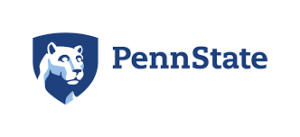 Penn State’s fully online Master of Professional Studies in Community and Economic Development is a 30 credit degree program designed for students working with nonprofit organizations or in local communities who are interested in developing and building community capacity, sustainability, infrastructure, and services through an interdisciplinary approach. Core courses include Principles of Local Economic Development, Community Structure, Processes, and Capacity, Leadership Development, Population, Land Use, and Municipal Finance, and the choice between Applied Statistics or Applied Research Methods. Elective courses include Resilient Communities and Environments, Entrepreneurship in the Community, Launching Community Ventures, Nonprofits, and Organizations, and Theories, Principles, and Institutions of International Development. In addition, all students complete a Master’s Paper integrating theory and practice on an issue of their choice.
Penn State’s fully online Master of Professional Studies in Community and Economic Development is a 30 credit degree program designed for students working with nonprofit organizations or in local communities who are interested in developing and building community capacity, sustainability, infrastructure, and services through an interdisciplinary approach. Core courses include Principles of Local Economic Development, Community Structure, Processes, and Capacity, Leadership Development, Population, Land Use, and Municipal Finance, and the choice between Applied Statistics or Applied Research Methods. Elective courses include Resilient Communities and Environments, Entrepreneurship in the Community, Launching Community Ventures, Nonprofits, and Organizations, and Theories, Principles, and Institutions of International Development. In addition, all students complete a Master’s Paper integrating theory and practice on an issue of their choice.
Accreditation: Pennsylvania State University is accredited by the Middle States Commission on Higher Education.
Program Tuition: $24,630
#10. University of Detroit – Mercy
The University of Detroit – Mercy (UDMercy) is a private Catholic four-year educational institution located in Detroit, MI. UDMercy offers two fully online masters programs in economics – the Master of Arts in Economics and the Master of Arts in Financial Economics. The Master of Arts in Economics prepares graduates for careers in law, government, business, and finance offering students the flexibility to tailor their degree choosing either an applied concentration or a theoretical concentration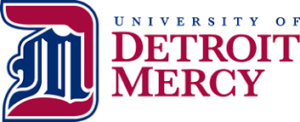 or a blend of both. Core courses only make up half of the degrees 30 credits and include Economic Analysis of Enterprise, Analysis of Economic Conditions, Quantitative Foundations of Economic Analysis, and Theory of International Trade. The other 15 credits come from elective courses in economics which offer a wide variety of courses including Business Enterprise and Public Policy, Labor Economics, Urban Economics and Planning, and Economic Development. A Master’s Thesis course must be one of the chosen electives. The Master of Arts in Financial Economics is similar to the first but offers a more in-depth study of economic theories and financial principles that are at work in U.S. and international financial institutions. Moral and ethical issues within the field are also explored in this liberal arts degree. Core courses for this degree make up 24 of the 30 credits and include most of the same courses but also Money and Capital Markets, Practical Issues in Financial Economics, and International Monetary Analysis. The remaining 6 credits are fulfilled with elective courses within the economics field. No thesis is required.
or a blend of both. Core courses only make up half of the degrees 30 credits and include Economic Analysis of Enterprise, Analysis of Economic Conditions, Quantitative Foundations of Economic Analysis, and Theory of International Trade. The other 15 credits come from elective courses in economics which offer a wide variety of courses including Business Enterprise and Public Policy, Labor Economics, Urban Economics and Planning, and Economic Development. A Master’s Thesis course must be one of the chosen electives. The Master of Arts in Financial Economics is similar to the first but offers a more in-depth study of economic theories and financial principles that are at work in U.S. and international financial institutions. Moral and ethical issues within the field are also explored in this liberal arts degree. Core courses for this degree make up 24 of the 30 credits and include most of the same courses but also Money and Capital Markets, Practical Issues in Financial Economics, and International Monetary Analysis. The remaining 6 credits are fulfilled with elective courses within the economics field. No thesis is required.
Accreditation: University of Detroit – Mercy is accredited by the Higher Learning Commission of the North Central Association of Colleges and Schools.
Program Tuition: $24,780